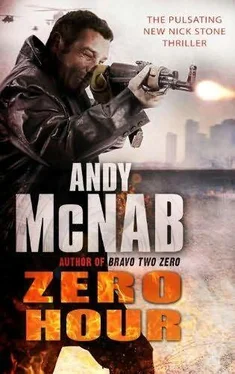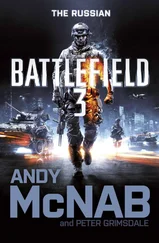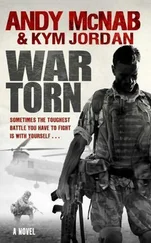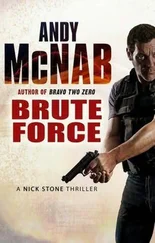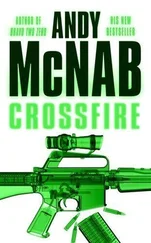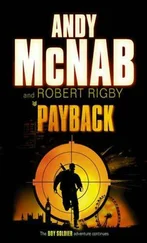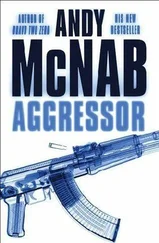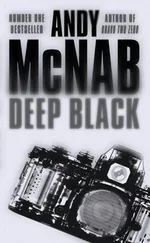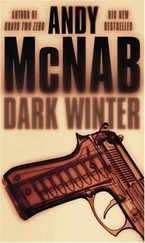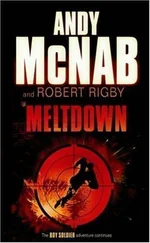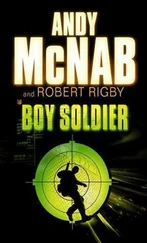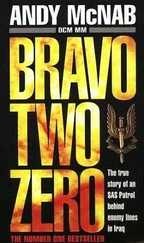Andy McNab - Zero hour
Здесь есть возможность читать онлайн «Andy McNab - Zero hour» весь текст электронной книги совершенно бесплатно (целиком полную версию без сокращений). В некоторых случаях можно слушать аудио, скачать через торрент в формате fb2 и присутствует краткое содержание. Жанр: Триллер, на английском языке. Описание произведения, (предисловие) а так же отзывы посетителей доступны на портале библиотеки ЛибКат.
- Название:Zero hour
- Автор:
- Жанр:
- Год:неизвестен
- ISBN:нет данных
- Рейтинг книги:4 / 5. Голосов: 1
-
Избранное:Добавить в избранное
- Отзывы:
-
Ваша оценка:
- 80
- 1
- 2
- 3
- 4
- 5
Zero hour: краткое содержание, описание и аннотация
Предлагаем к чтению аннотацию, описание, краткое содержание или предисловие (зависит от того, что написал сам автор книги «Zero hour»). Если вы не нашли необходимую информацию о книге — напишите в комментариях, мы постараемся отыскать её.
Zero hour — читать онлайн бесплатно полную книгу (весь текст) целиком
Ниже представлен текст книги, разбитый по страницам. Система сохранения места последней прочитанной страницы, позволяет с удобством читать онлайн бесплатно книгу «Zero hour», без необходимости каждый раз заново искать на чём Вы остановились. Поставьте закладку, и сможете в любой момент перейти на страницу, на которой закончили чтение.
Интервал:
Закладка:
I'd passed the hole in the fence without giving it a second glance. The oil tanker that had been parked up yesterday had gone. The lads waiting for the ferry leant against their bikes, smoking or chatting on their mobile phones.
The Panda, for now, was static and hidden. I wasn't going to take it back to a place I'd been honked at. I wanted to check out the silo without being pinged by the neos.
The ferry was now about halfway across. The sky was still trying to make up its mind whether to rain or shine. Now and again a shaft of sunlight broke through, but it was soon beaten back. I stared out of the window, yawned and checked to see if the pinprick was still above us. There'd be a lot of covert ops going on in the Costa del Clog. This city sold a whole lot more than red cheese and tulips. It was the world's drugs hypermarket and the United Nations rolled into one.
The Russians and Turks controlled the heroin, the South Americans the cocaine. The Moroccans, Jamaicans and Africans ran weed. The challenge for British gangs was transporting the stuff home. Most tried to ship it as bog-standard cargo, but there were other ways. The East Europeans helped them out. A mule can swallow about a kilo of coke packed into condoms. Fuck Dragons' Den. The big-time drug tsars could eat the men in suits soft-boiled for breakfast. If only these lads could apply their skills to the real world, we'd be out of recession in no time.
Deals were done here because it was a perfect distribution hub, east and west, and not just for drugs. For Brits like Flynn, the UK was only a ferry ride away, or less than an hour on a plane. Friends and family could pop over for the weekend. The Dutch all spoke English and they looked like us, so it was very easy to blend in. No wonder a third of all British fugitives were tracked down in this neck of the woods. One Brit was lifted by the Dutch police with a?125 million haul ready for shipment to the UK.
The landing-craft ramp came down at the end of Tasmanstraat. The bikes trundled off first and I followed. The road was dead straight, built on reclaimed land. I wanted to get hold of a map, but I wasn't going to find one here. The smart apartment blocks on my right looked like they'd been built in the thirties. On my left, the road was lined with trees and bikes. The canal was wide, with more apartment blocks on the opposite bank. They were Gucci too, and there wasn't a scrap of litter or an election poster in sight. This must be where the professionals lived. Perhaps they were all so rich they didn't need shops. They had everything delivered.
I carried on towards the west end of the city. Daffodil buds poked through the ground, searching for sunlight. It was trying really hard to be spring, but it wasn't happening yet. What was going on here? I was on a job, not a nature trail.
I finally came across a shop on the ground floor of an apartment block. It wouldn't sell maps but the green cross meant it would have something else I needed. I went inside. Maybe a pharmacy in the building gave some indication of the age group of the people who lived here. I bought three packets of aspirin in tin foil and a bottle of water. I washed down a couple of Smarties and moved on.
The road became busier and wider still. I came to a bridge at a T-junction. Traffic lights were strung on cables across about five converging roads. The apartment buildings looked more sixties now, but were still upmarket. One to my half-right was arranged in an open square. A shopping plaza filled the ground floors. I headed over. There was another pharmacy, a newsagent and a cafe with chairs and tables outside.
There's something magic about the number three. If I tried to buy four packs the pharmacist might get sparked up – it just tipped the scale. If they balked even at three, I had my excuse ready. I took one a day to keep heart attacks at bay.
The newsagent fixed me up with a shiny new postcard-sized tourist map. The target road was about a kilometre away, at the start of the narrower canals. I'd soon be in Van der Valk country again.
Heading back towards the main to get my bearings, I noticed a bunch of daffs around the base of a tree that had managed to leap out of the mud and burst into flower. Either the plaza had its own microclimate, or the bulbs hadn't paid any attention to Mother Nature's timetable.
I went and sat outside the cafe and waited for someone to come and take my order. I admired the daffodils again, and then I found myself looking at all the people around me, doing everyday stuff like going into shops and walking around with mobiles; mums pushing prams; a couple of old men sitting on a bench under the tree, reading newspapers as they waited to die. I looked at the tree. It would also be budding soon, I supposed.
I'd never really bothered with this sort of stuff. When I was a squaddie, I only knew three types of weather: wet, hot, and cold. Even as a kid, I didn't understand about seasons. I didn't know how it all worked. Council estates were grey all the time, so what was the point?
I made a decision. I didn't want to die without living. Once this job was over, I needed to have a look at the real stuff. I'd head for Moscow with Anna and go and see some paintings I'd read about and try to work out what had got everyone so excited. In the meantime I'd sit here for a while and let my unconscious soak it all up. This could be my one and only chance at a bit of normality. Maybe I'd thought of it as shite all my life because I couldn't be bothered to get off my arse and go and have a look. Then again, maybe it was because I was scared of getting too close to what these people did – going to work, having a mortgage, raising families, looking in the mirror, being real.
19
A group of toddlers played in the square, watched over by their mums. The weapons-grade buggies they were pushing had probably cost more than my first car. I watched them for a while, then sat and stared at the speck hovering high over the eastern side of the city for so long it almost hypnotized me.
I was woken from my semi-daze by the arrival of coffee and a sticky bun. Good. I had to start concentrating. The job was the thing that mattered, not some daffs sticking out of the mud or me wondering what the view was like from the eye in the sky.
I drank my coffee, then fished out my map. The streets and canals became narrower from here on in. Westerstraat lay at the base of a triangle of land, with canals framing the other two sides. A road ran down from the apex, and vertical streets either side paralleled Westerstraat, forming a grid of sorts. I hadn't taken much notice of this yesterday. I'd just concentrated on Anna's directions and getting to the meet on time.
Anne Frank's house, another place I should add to my bucket list, was a bit further down. I'd walked past it a few times when I was a squaddie, but never gone in. It hadn't offered strippers or beer.
I headed back to the junction with my pockets full of aspirin. I'd get a whole lot more later on: I'd need a Bergenful to achieve what I had in mind.
I crossed a bridge over the west-side canal. As I walked down it, I scanned the roads parallel to Westerstraat; they were narrow and one-way. I was coming into the Amsterdam I knew best, in Van der Valk country: canals, trams, cyclists weaving between pedestrians, cobbles, narrow one-way streets. Centuries-old houses leant out over the brick-paved streets. Bikes were parked everywhere. Pedestrians were segregated from cars by lines of bollards. The buildings were immaculately kept and predominantly residential. Even the houseboats looked expensive. A James Bond villain would have looked completely at home among their timber and glass.
I remembered reading somewhere that a couple of hundred years ago these houses were taxed according to how much land they occupied. Surprise, surprise, the Dutch went narrow and high. There were at least four or five storeys to all these places, with big, warehouse-style winches sticking out of their attics so anything large and heavy could be hauled up to the higher floors.
Читать дальшеИнтервал:
Закладка:
Похожие книги на «Zero hour»
Представляем Вашему вниманию похожие книги на «Zero hour» списком для выбора. Мы отобрали схожую по названию и смыслу литературу в надежде предоставить читателям больше вариантов отыскать новые, интересные, ещё непрочитанные произведения.
Обсуждение, отзывы о книге «Zero hour» и просто собственные мнения читателей. Оставьте ваши комментарии, напишите, что Вы думаете о произведении, его смысле или главных героях. Укажите что конкретно понравилось, а что нет, и почему Вы так считаете.
